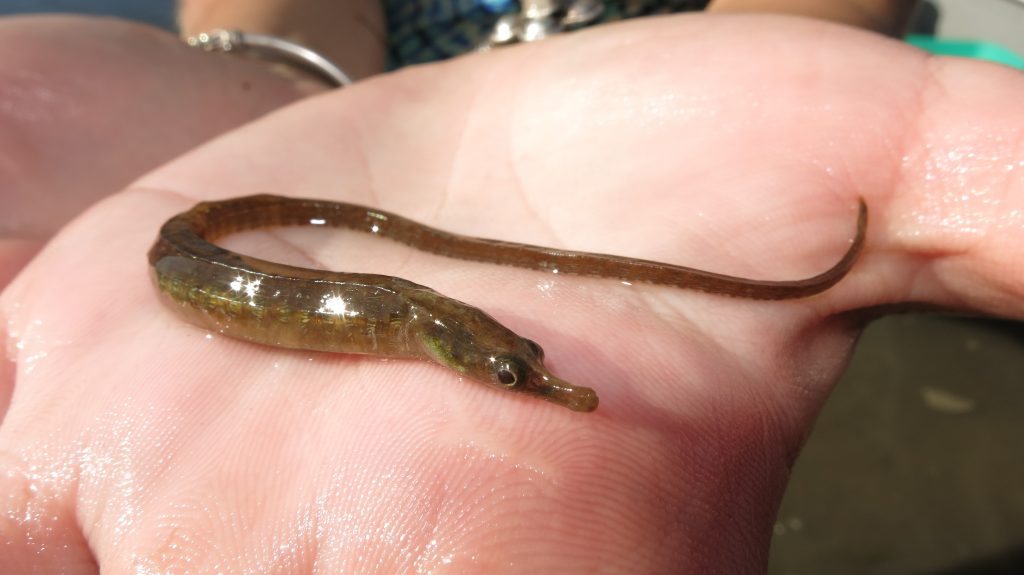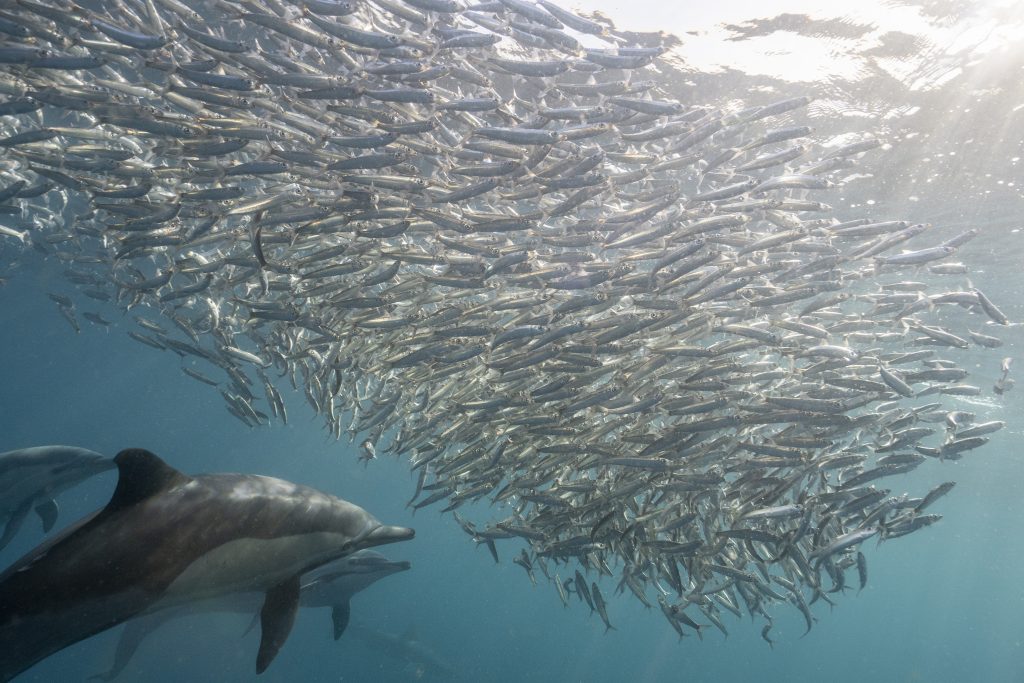Staff Members
Home »
Professor
Name: Peter Teske
Location: D3 Lab 339 Auckland Park Kingsway Campus
Zoology Academic Staff Staff Members
Contact Details:
Tel: +27(0)11 559 3373
Email: prteske@uj.ac.za
Curriculum Vitae Peter TeskeAbout Peter Teske
Research: Professor Teske is a geneticist who uses cutting-edge molecular technology (genomics, transcriptomics, metabarcoding and metagenomics) to study marine and freshwater species. Research aims include improving the management of threatened and exploited species, and documenting biodiversity. Ongoing research projects include:
- Population genomics and faecal metabarcoding/metagenomics of the Critically Endangered estuarine pipefish, Syngnathus watermeyeri
- DNA barcoding and metabarcoding of estuarine species in Mozambique and South Africa, and along the Zambezi River (Mozambique and Zambia)
- Population genomics of the littorinid snails Afrolittorina africana and A. knysnaensis
- Phylogenomics of mangroves and mangrove-associated crabs
- Metabarcoding of Gauteng’s groundwater fauna
- Biodiversity and connectivity of metazoans in South African stromatolite systems
Teaching: Physiology 3B and two honours courses, Scientific Writing and Population Genetics & Biosystematics.
Recent publications:
- Laura Tensen, Peter R. Teske (in press) Research monopolization in the biological sciences: charismatic species are partly to blame. People and Nature.
- Arsalan Emami-Khoyi, Claudia M. Schnelle, Dave R. Clark, Silke Laakmann, Peter R. Teske, Gavin M. Rishworth (2025) Eukaryote biodiversity in supratidal microbialite pools: A foundational environmental DNA assessment. Estuarine, Coastal and Shelf Science 319:109284.
- Jody-Carynn Oliver, Francesca Porri, Arsalan Emami-Khoyi, Peter R Teske (2024). Unexpected mismatches in population structure among marine mussel life-history stages reveal the true scales of planktonic larval dispersal. Limnology and Oceanography Letters 9: 806-814.
- Xiao-Nie Lin, Chao-Yi Ma, Li-Sha Hu, Ming-Ling Liao, Lin-Xuan Ma, Peter R Teske, Ary Hoffmann, Yun-Wei Don (2024) Genomics-informed range predictions under global warming reveal reduced adaptive diversity whilst buffering range shifts for a marine snail. Global Change Biology 30: e17571.
- Katie Gates, Jonathan Sandoval-Castillo, Andrea Barceló, Andrea Bertram, Eleanor A.L. Pratt, Peter R. Teske, Luciana Möller, Luciano B. Beheregaray (2024) Connecting the dots: Applying multispecies connectivity in marine park network planning. Biological Conservation 298:110759.
- Marc Rius, Xavier Turon, Paloma Morán, Jacinto Pérez, Bruno Almón, Govan Pahad, Peter R. Teske, Elsa Vázquez (2024) A morphogenetic characterisation of a potentially dominant African marine species in Europe. Biological Invasions 26:2811-2818.
- Gareth N Fee, Alvaro Roura, Arsalan Emami-Khoyi, Peter R Teske (2024) The complete mitochondrial genome of Octopus vulgaris. Molecular Biology Reports 51:21
- Daniela Marques Monsanto, David William Hedding, Sandra Durand, Shilpa Pradeep Parbhu, Matthew G Adair, Arsalan Emami-Khoyi, Peter R Teske, Bettine Jansen van Vuuren (2024) The effect of terrain on the fine-scale genetic diversity of sub-Antarctic Collembola: A landscape genetics approach. Ecology and Evolution 14:e11519.
- Paula M de Coito, Arsalan Emami‐Khoyi, Terry A Hedderson, Robert J Toonen, Peter R Teske, George M Branch (2023) A critically endangered estuarine limpet’s only two populations are genomically and morphologically distinct. Aquatic Conservation: Marine and Freshwater Ecosystems 33:867-883.
- Conny P Serite, Arsalan Emami-Khoyi, Ofentse K Ntshudisane, Nicola C James, Bettine Jansen van Vuuren, Taryn Bodill, Paul D Cowley, Alan K Whitfield, Peter R Teske (2023) eDNA metabarcoding vs metagenomics: an assessment of dietary competition in two estuarine pipefishes. Frontiers in Marine Science 10:1116741
- Arsalan Emami-Khoyi, Candice M Jooste, Ryan John Wasserman, Tatenda Dalu, Jade Raath-Krüger Morgan, Bettine Jansen van Vuuren, Peter R Teske (2023) Persistent effects of historical sea levels on the population structure of a temporary wetland copepod. Freshwater Biology 68:1442-1452
- Sven-Erick Weiss, Arsalan Emami-Khoyi, Horst Kaiser, Paul D Cowley, Nicola C James, Bettine Jansen van Vuuren, Alan K Whitfield, Peter R Teske (2022) The Last Two Remaining Populations of the Critically Endangered Estuarine Pipefish Are Inbred and Not Genetically Distinct. Frontiers in Marine Science 8:756595
- Peter R Teske, Arsalan Emami-Khoyi, Tirupathi R Golla, Jonathan Sandoval-Castillo, Tarron Lamont, Brent Chiazzari, Christopher D McQuaid, Luciano B Beheregaray, Carl D van der Lingen (2021) The sardine run in southeastern Africa is a mass migration into an ecological trap. Science Advances 38:eabf4514
- Jamie Hudson, Juan Carlos Castilla, Peter R Teske, Luciano B Beheregaray, Ivan D Haigh, Christopher D McQuaid, Marc Rius (2021) Genomics-informed models reveal extensive stretches of coastline under threat by an ecologically dominant invasive species. Proceedings of the National Academy of Sciences of the USA 118:e2022169118

Popular science and technical articles:
- M Rius, CD McQuaid, J Hudson, JC Castillo, LB Beheregaray, PR Teske (2022) ¿Cómo predecir la expansión de una especie invasora a través de su ADN? https://theconversation.com/como-predecir-la-expansion-de-una-especie-invasora-a-traves-de-su-adn-169847
- PR Teske, C van der Lingen, CD McQuaid, LB Beheregaray (2021) South Africa’s massive ‘sardine run’ leads fish into an ecological trap. https://theconversation.com/south-africas-massive-sardine-run-leads-fish-into-an-ecological-trap-168413
- PR Teske, T Lamont, C van der Lingen (2021) Oceanographic triggering of South Africa’s sardine run; p. 17 in Oceans and Coasts: Annual Science Report 2021. Department of Forestry, Fisheries and the Environment, Republic of South Africa. ISBN: 978-0-621-49993-3: Oceans and Coasts SCIENCE REPORT 2021 FINAL DRAFT HI RES
In the news:
- What is the largest animal migration on Earth? IFL Science
- How South Africa’s sardine run is changing. BBC; see also this podcast on SAfm
- Saving the near-extinct estuarine pipefish means protecting estuary health. Mongabay
- Mystery of doomed sardine migration is finally solved. Scientific American
- Potty training cows, and sardines swimming into an ecological trap: Science podcast
- Famous South African sardine run doesn’t benefit sardines: study. TheScientist
- One of the world’s largest marine migrations makes no evolutionary sense. IFL Science
- How ‘the greatest shoal on Earth’ leads sardines into an ecological trap. Sunday Times
- The Greatest Shoal on Earth: Scientists discover why sardines run. Daily Maverick

Genomic research shows that the sardines participating in the annual KwaZulu-Natal sardine run originate from South Africa’s west coast (Atlantic Ocean), and thus prefer colder water. They are attracted to the east coast (Indian Ocean) by brief cold-water upwelling, and eventually end up in subtropical water that is too warm from them (Photo: Steven Benjamin)
Links:
Centre for Ecological Genomics and Wildlife Conservation
Profiles: Google Scholar, Scopus, Loop, Publons, ORCID
